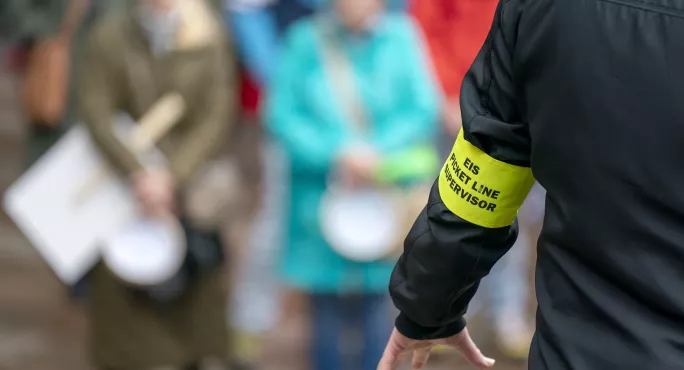Members of the EIS teaching union in Glasgow have voted overwhelmingly in favour of industrial action.
Some 96 per cent of those who cast a vote supported action short of a strike, while 90 per cent voted for strike action, on a 60 per cent turnout.
The consultative ballot of more than 5,000 EIS members in Scotland’s largest city was conducted as the next stage in the dispute the EIS lodged with Glasgow City Council on 15 March.
News of the result comes as primary school leaders’ body - the Association of Headteachers and Deputes in Scotland (AHDS) - also revealed the results of its indicative ballot.
Based on a turnout of 74 per cent, 83 per cent indicated they would be willing to undertake action short of strike action over the cuts to teacher numbers, and 80 per cent said they would be willing to undertake strike action.
Greg Dempster, general secretary of AHDS, said if replicated in a formal ballot the result “would easily surpass the thresholds required to enable industrial action to proceed”.
He said the council could now be “in no doubt” about the strength of feeling among primary school leaders and called on it to “reconsider its plans” and “to do so swiftly”.
The EIS ballot called for a reversal in the proposal to cut 450 teaching posts over three years, first reported by Tes Scotland in February.
The union said that 125 posts were lost over this school year with a further 172 to go before schools returning in August.
Jane Gow, secretary of EIS Glasgow, said: “The EIS is crystal clear that the loss of jobs vital to education provision in Glasgow will irreparably damage the life chances of many of the city’s young people and most especially those with additional support needs.
“Already, 45 of our primary schools will see all teachers fully class-committed with only the headteacher available to provide support for all pupils, staff and parents. This will mean there is little or no capacity for small group or one-to-one provision for those pupils in most need of nurture, literacy and numeracy support.”
‘Irreparable damage’ for decades
The union says the plans in Glasgow would do “irreparable damage...now and in decades to come”.
Ms Gow added: “Fewer teachers in the secondary sector where pupil rolls are increasing will undoubtedly lead to larger class sizes, which will see a dramatic reduction in teachers’ ability to attend to the needs of their most vulnerable pupils.
“The steady erosion of funding to education in Glasgow has impacted our additional support needs sector, with young people who have complex needs being placed in schools not designed to meet those needs. This has had the most profound effect on our most vulnerable pupils and seen a dramatic rise in violent incidents because of a severe decrease in resources to support dysregulated behaviours.”
A Glasgow City Council spokesperson said: “We will await the official confirmation and will continue to engage with our trade union colleagues.”
For the latest Scottish education news, analysis and features delivered directly to your inbox, sign up to Tes magazine’s The Week in Scotland newsletter




